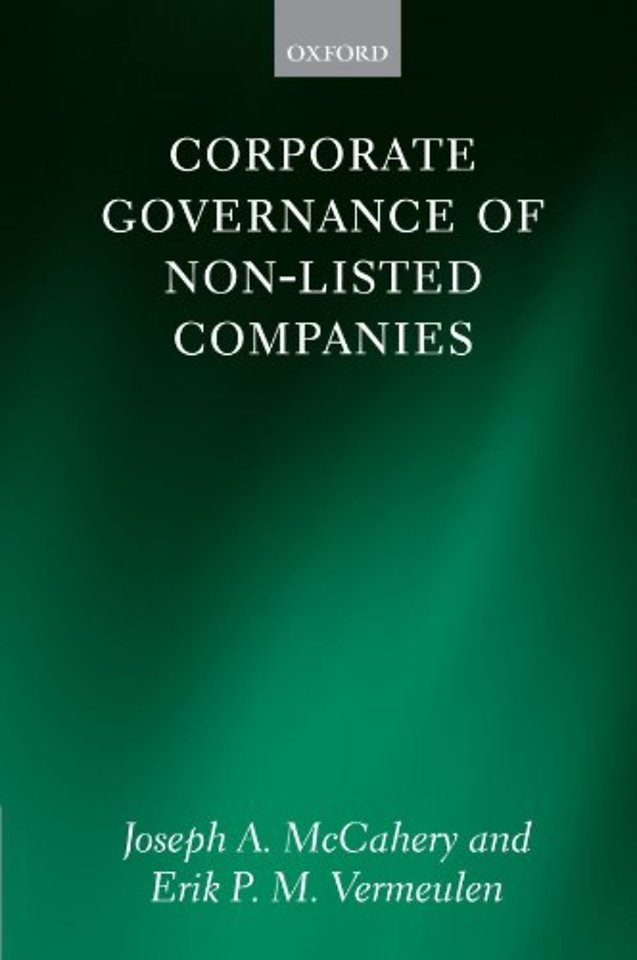

Corporate Governance of Non-Listed Companies
Paperback Engels 2010 9780199596386Samenvatting
Studies of corporate governance traditionally focus on the governance problems of large publicly held firms, and policymakers' recommendations often focus on such firms. However most small firms, and in many countries, even many large companies, are non-listed. This book provides a comprehensive account of non-listed businesses and their particular governance problems. It explores current discussions and reforms in Europe, the United States, and Asia providing a state of the art account of the law and the economics.
Non-listed firms encompass a vast range, from corporations with the potential to go public through family-owned firms, group-owned firms, private equity and hedge funds, to joint ventures and unlisted mass-privatized corporations with a relatively high number of shareholders.
The governance of non-listed companies has traditionally been concerned with protecting investors and creditors from managerial opportunism. However, the virtual elimination of the distinction between partnerships and corporations means that an effective legal governance framework must also offer mechanisms to protect shareholders from the misconduct of other shareholders.
This volume examines policy and economic measurements to develop a framework for understanding what constitutes good governance in non-listed companies. The authors examine how control is gained and explore the mechanisms that contribute to the development of a modern and efficient governance framework. The book concludes with an exploration of how the closely held firm is likely to stimulate growth and extend innovation and development.
Specificaties
Lezersrecensies
Anderen die dit kochten, kochten ook
Rubrieken
- advisering
- algemeen management
- coaching en trainen
- communicatie en media
- economie
- financieel management
- inkoop en logistiek
- internet en social media
- it-management / ict
- juridisch
- leiderschap
- marketing
- mens en maatschappij
- non-profit
- ondernemen
- organisatiekunde
- personal finance
- personeelsmanagement
- persoonlijke effectiviteit
- projectmanagement
- psychologie
- reclame en verkoop
- strategisch management
- verandermanagement
- werk en loopbaan





